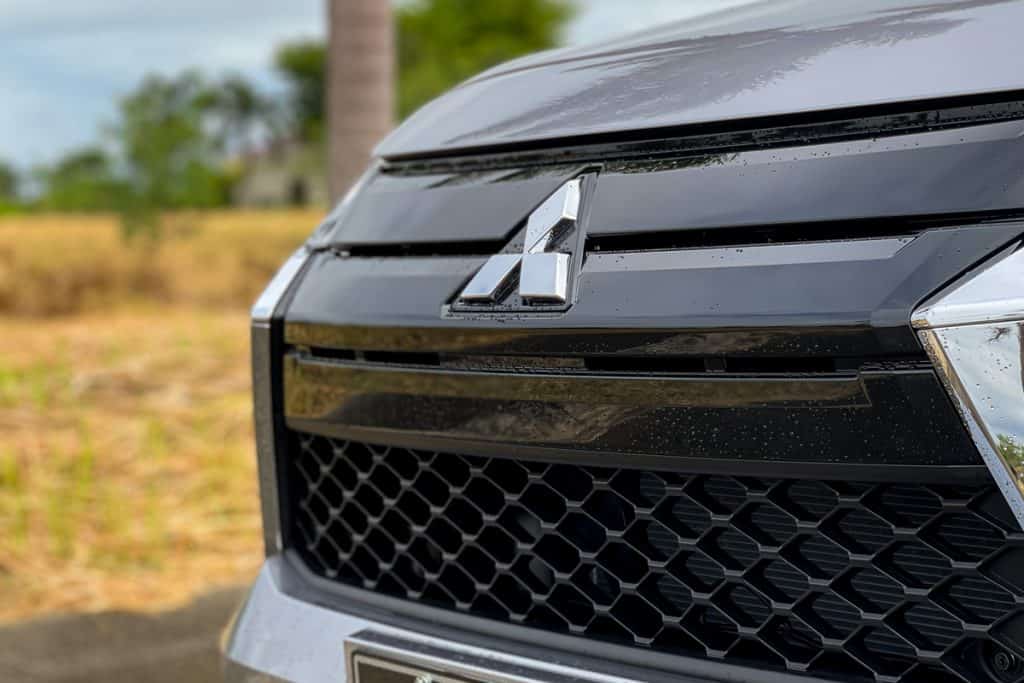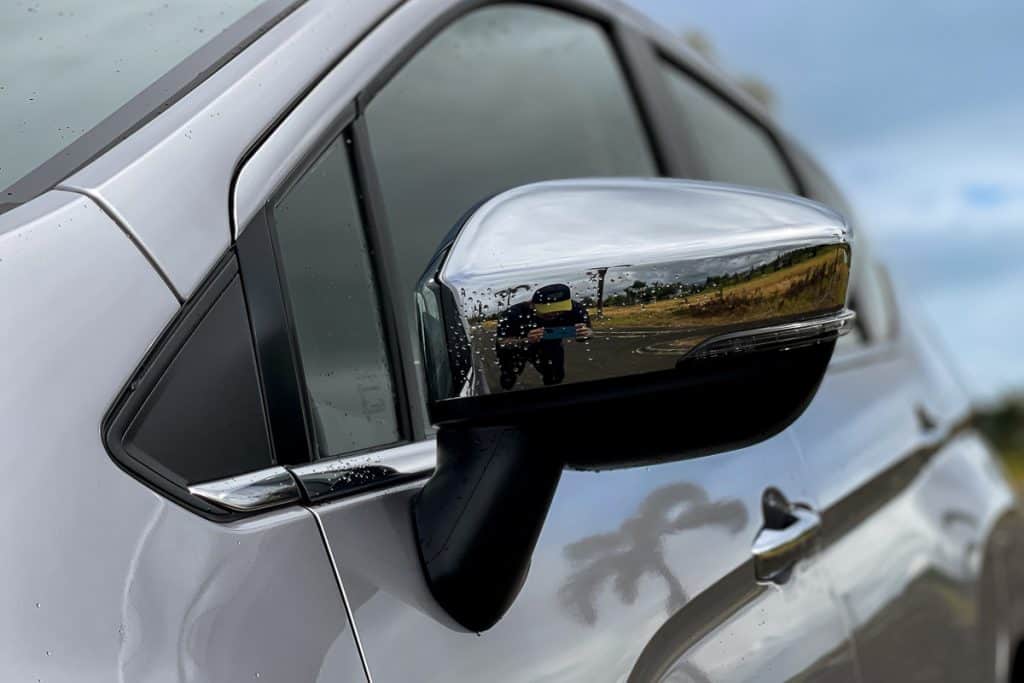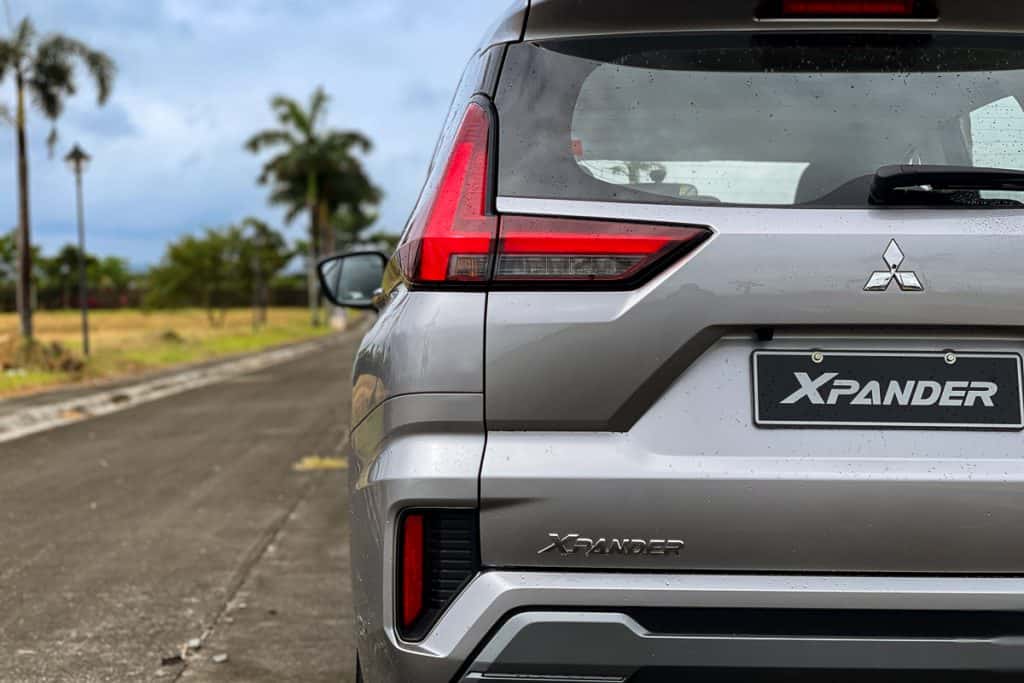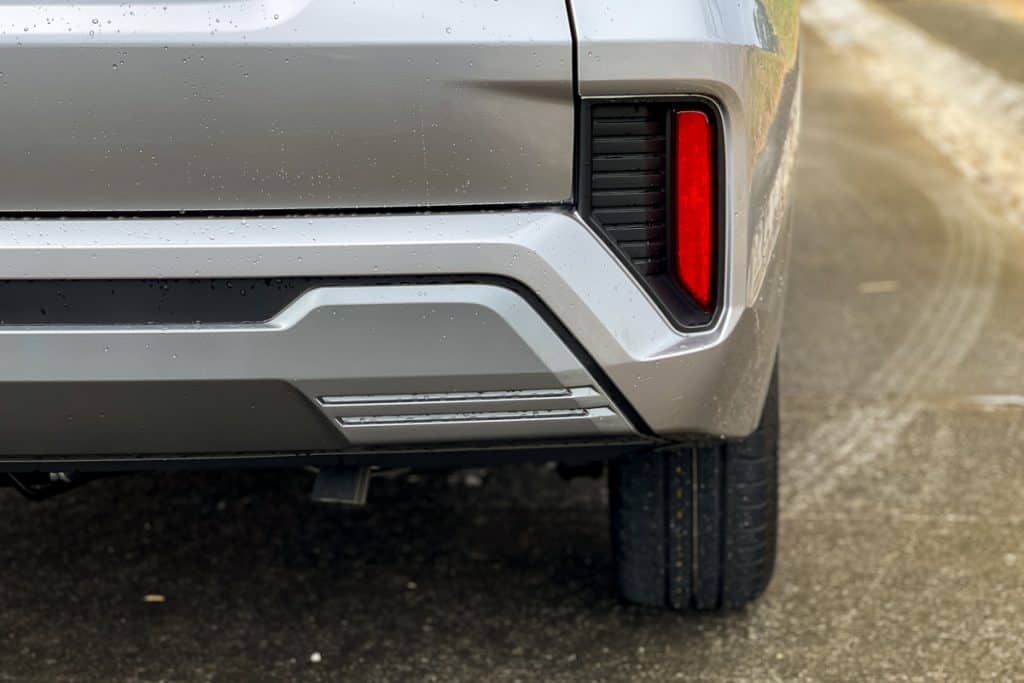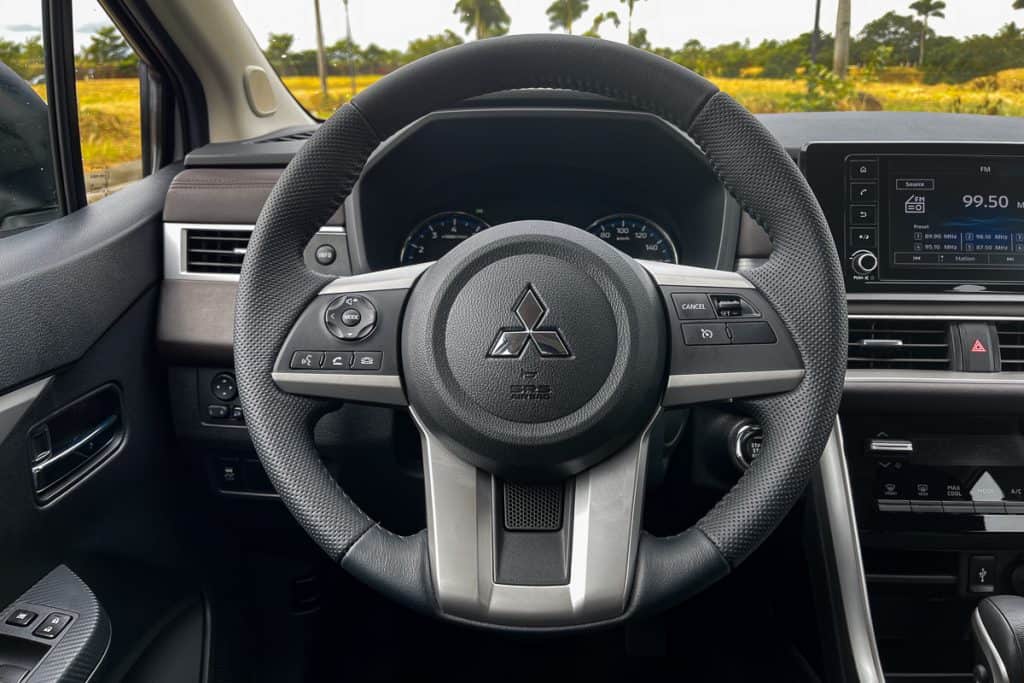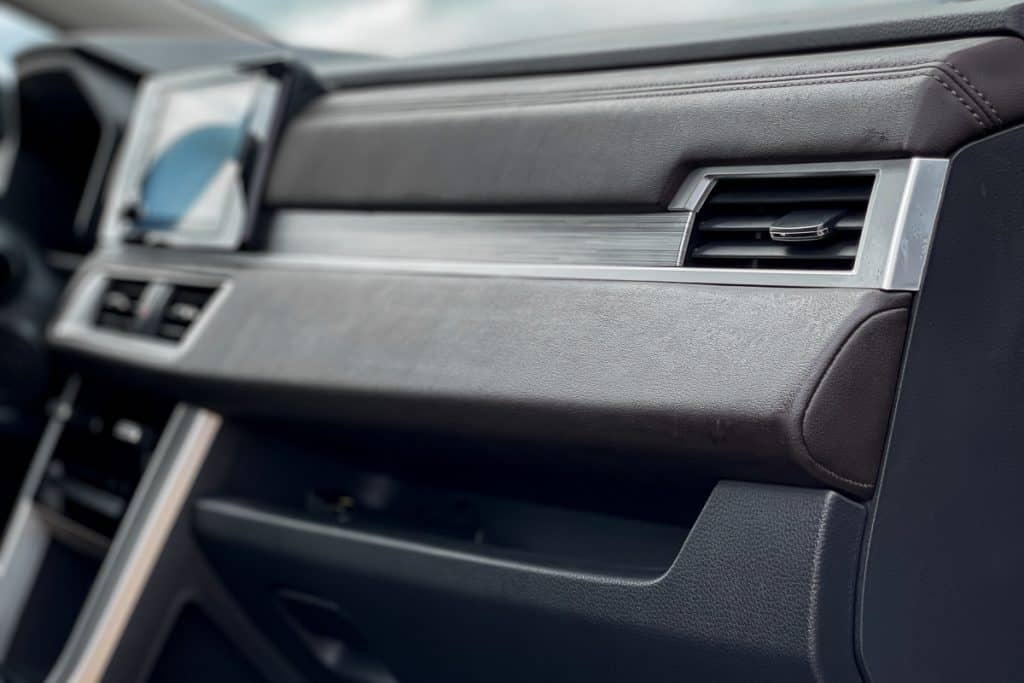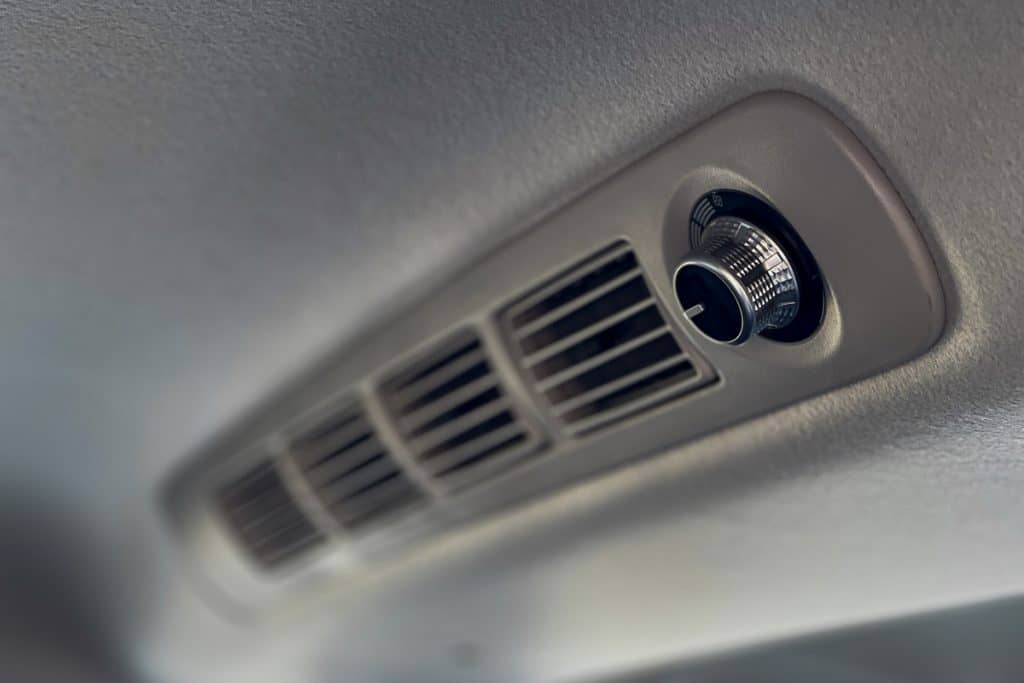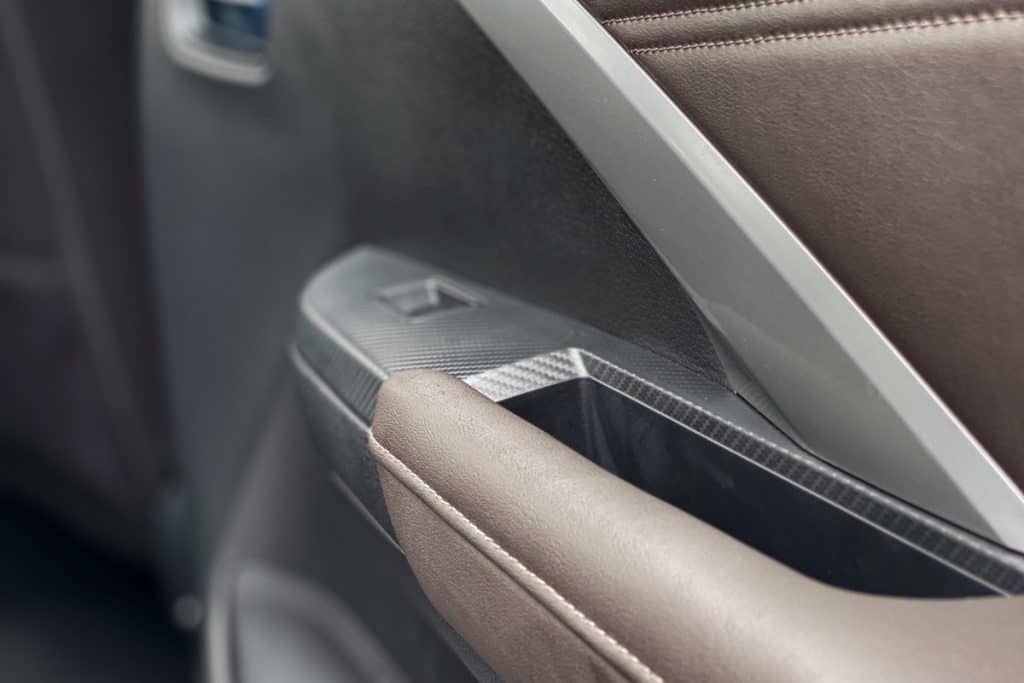When Mitsubishi Motors Philippines Corp. (MMPC) introduced the Xpander MPV into its lineup a number of years ago, it faced a few adversities along the way that we motoring journalists find to be substantial. First was its polarizing appearance, which was a bit futuristic at that time. Second was the fact that it had huge shoes to fill – and I’m talking about the wildly popular Mitsubishi Adventure.
A few years on and with one facelift already on its belt, MMPC has proven that the Xpander formula works, with the MPV now standing as the company’s bestseller. Building upon that, MMPC has introduced the second facelifted model recently and I got a quick seat time on it before its launch. Here are my thoughts.
Exterior
Remember the polarizing appeal that I mentioned earlier? Well, it’s still there though Mitsubishi’s going for fewer chrome bits in the Xpander’s second facelift. The grille is now finished in piano black, plus the T-shaped LED headlights fill the space underneath the LED daytime running lights. It’s a different story at the back. The more defined T-shaped taillights reflect what’s at the front, though I think the execution’s better here.
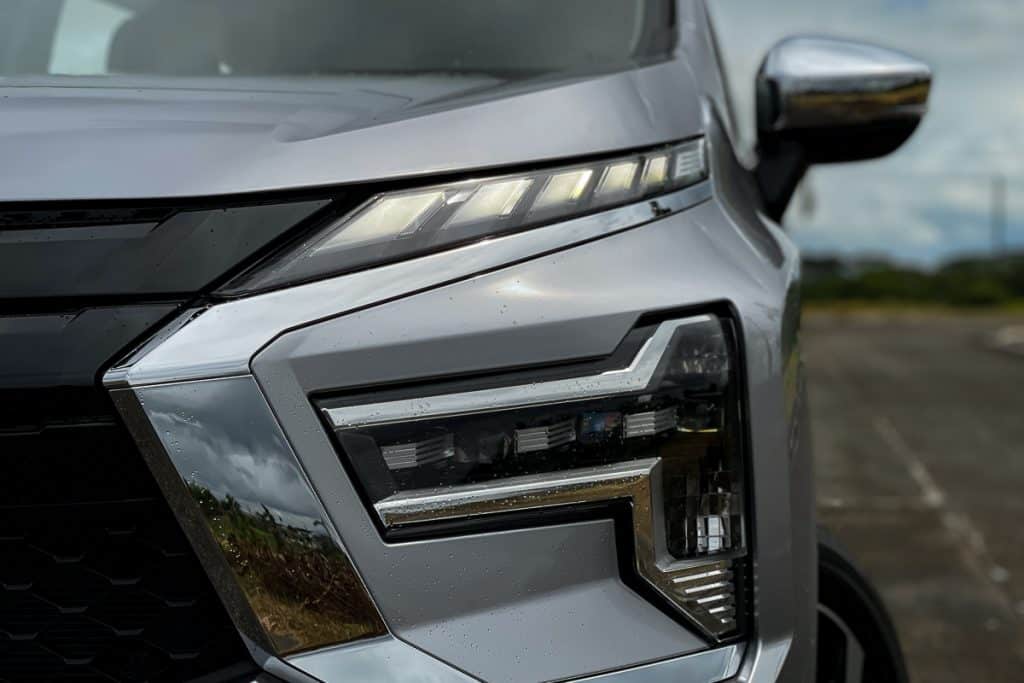
Personally, I’m not into the new Xpander’s front fascia as I find it too busy. However, I must commend the company for moving the license plate holder below the grille for a more streamlined look. And yes, that rear looks great.
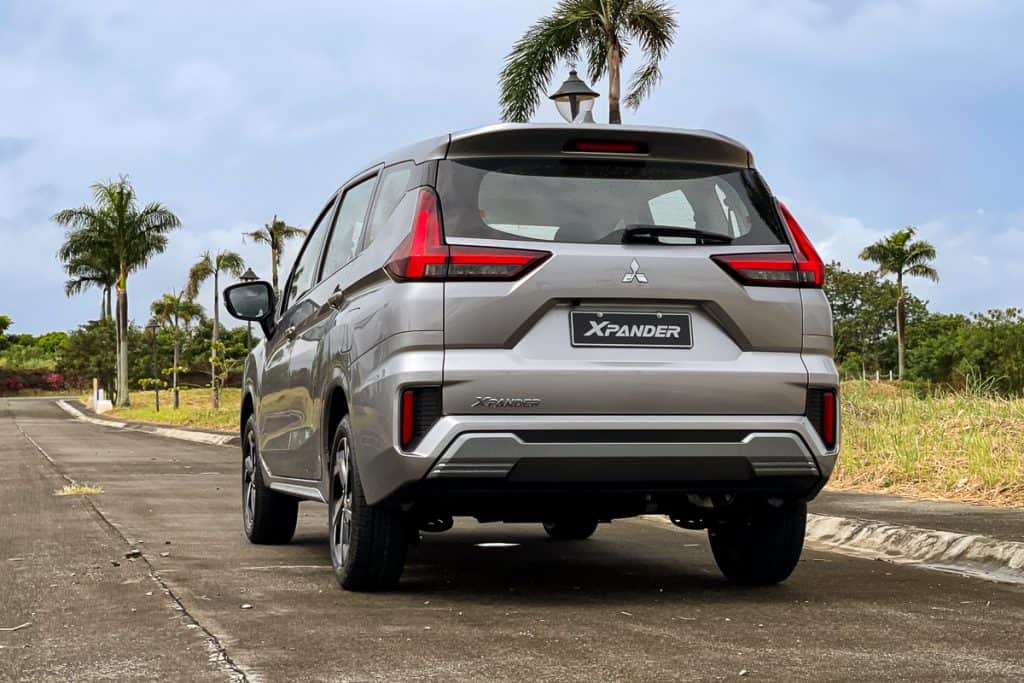
Size-wise, the new Xpander is marginally bigger than the outgoing model due to deviations in the form and design. This didn’t affect the interior space since the current wheelbase is retained. Ground clearance, however, gets a healthy bump to 225mm, which is the same as what the Xpander Cross has.
Interior
The changes on the Xpander aren’t limited to exterior design. The cabin gets a styling update as well, along with enhancements to the materials used. The one I sat on was the top-spec GLS variant, which comes with soft-touch materials on the dashboard and brushed aluminum finishes.
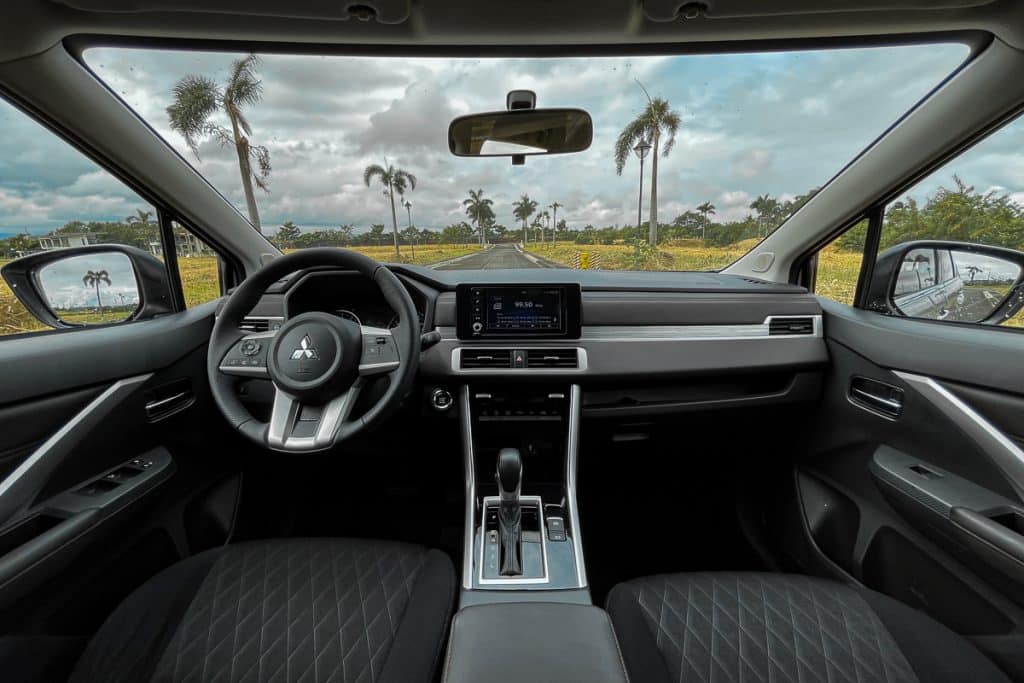
It’s obvious that Mitsubishi was going for an elegant feel in the cabin, except for a few carbon fiber prints. The fabric seats are soft and actually feel nice to the touch. Overall, the cabin quality feels better than before – bonus points for the new round steering wheel hub that mimics that of the Lancer Evolution X’s.
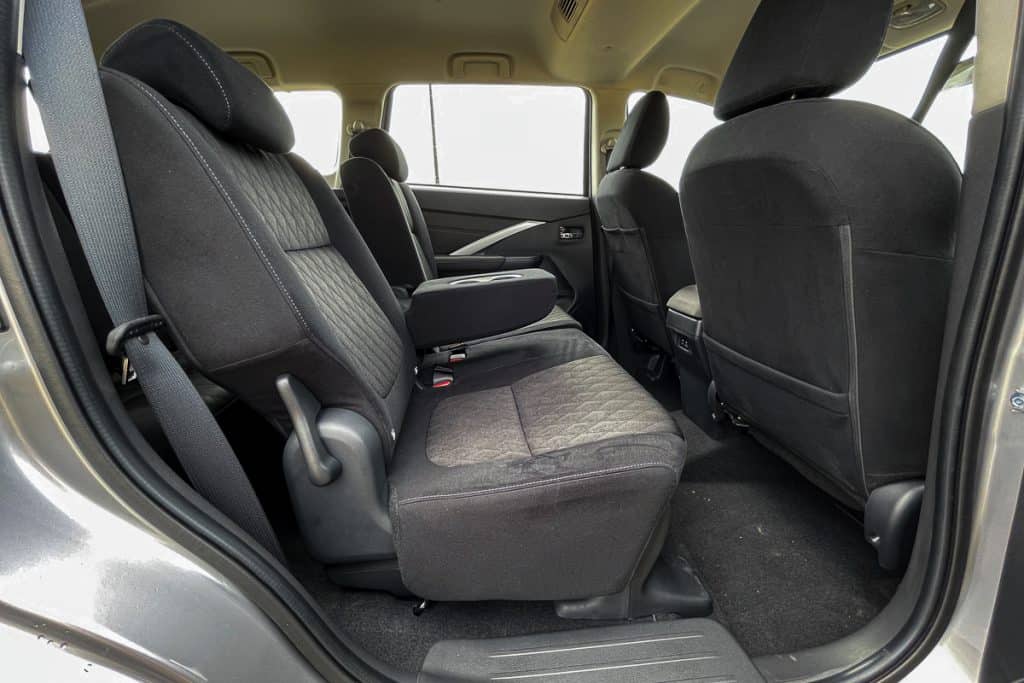
Just like before, ergonomics and storage are the main considerations inside the new Xpander. This has been amplified further by the addition of a center console storage box that doubles as an elbow rest.

Rear passengers will feel the update, too. Apart from the new seat upholstery, the air-conditioning controls have been redesigned as well, plus the folding center armrest now comes with cupholders. There are USB charging ports as well. The third row and the cargo has been carried over, and that isn’t a bad thing as the Xpander has one of the best third rows in its segments.
Tech & Safety
Even as an MPV, Mitsubishi made sure that the Xpander isn’t lacking in tech and safety amenities. Apple CarPlay and Android Auto are now standard on the 70-inch infotainment system, which should work out well for seamless smartphone connectivity. The screen doubles as a display for the range-standard reverse camera, though the resolution can be better.
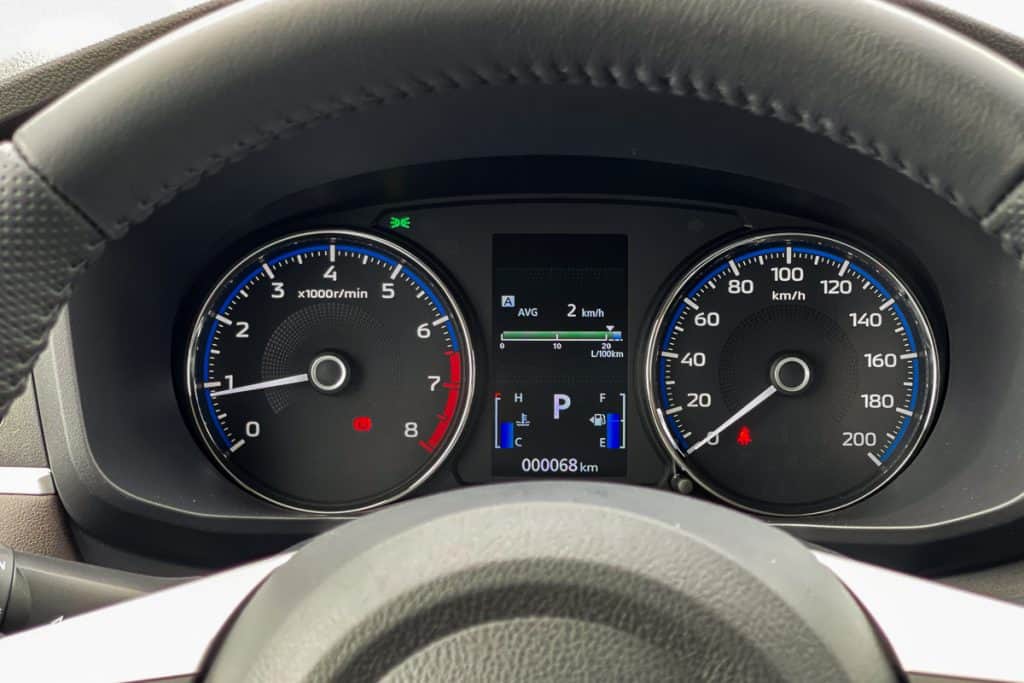
Another tech improvement in the Xpander is the addition of electronic parking brakes. While going for electronic ones doesn’t bode well for traditional Filipino buyers, the addition of the auto brake hold function should introduce people to the heaven-sent convenience that technology brings to the table.
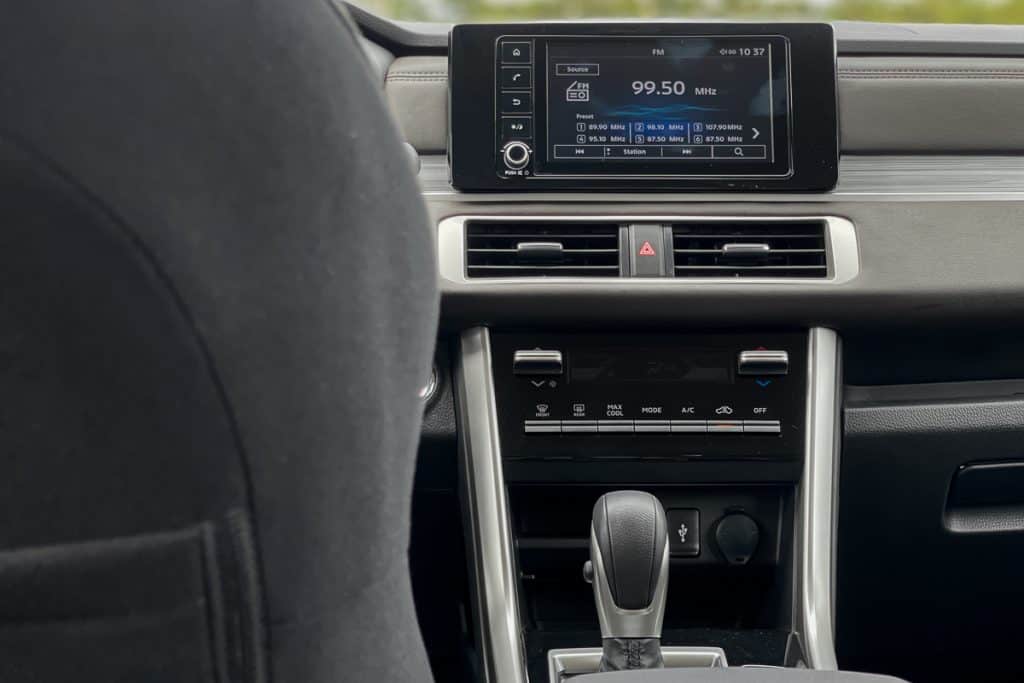
In terms of safety, the new Xpander comes with front dual airbags, seatbelts for all seven occupants, traction control, hill start assist, ABS with EBD, side-impact beams, and active stability control. These are on par in its class, though additional airbags for the rest of the car would have been appreciated.
Driving & Handling
Despite the Indonesian-spec Xpander getting the version with a CVT, MMPC opted to keep the dated 4-speed automatic gearbox (torque converter) rather than the belt-driven tranny. We asked MMPC why and they said that it’s a matter of “if it isn’t broke, why fix it?”

I agree to an extent as the 4-speed AT isn’t exactly a bad transmission. It’s actually better than CVTs in terms of longevity and maintenance, though the latter has an advantage in terms of fuel efficiency and smoothness.
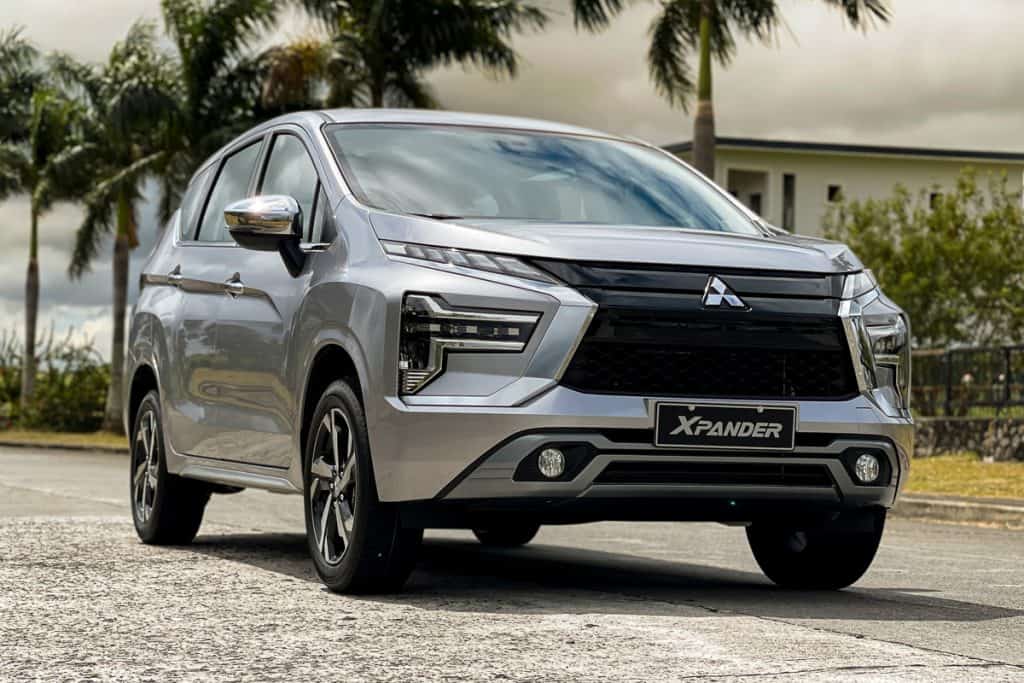
That said, the new Xpander and its 4-speed gearbox were well put and behaved nicely on the road. The rev band wasn’t exhausted and I must say, it has the most updated version of 4-speed gearboxes to this date. Power’s unchanged from the current model, so expect it to be adequate to move seven people around.
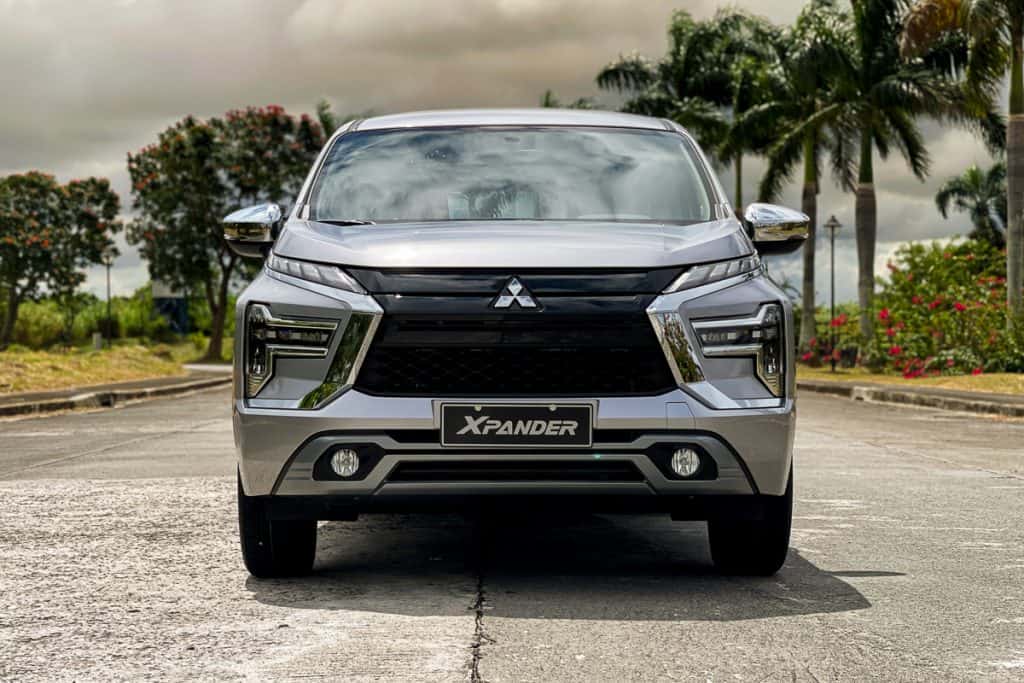
Another talking point would be the Xpander’s riding comfort. As Mitsubishi increased the ground clearance, a bothersome body roll was expected during my test, it wasn’t so. That’s because MMPC has updated the Xpander’s suspension to go with the raised space from the ground.
Initial Verdict
It isn’t all sunshine for the new Xpander given the highs and lows I mentioned here. But one thing’s for sure – Mitsubishi knows how to stay on its lane and keep the Xpander a family-friendly vehicle despite the improvements employed for this second facelift. For those in the market for a seven-seater, it should remain an attractive purchase.

MMPC has now started pre-selling the Xpander for an undisclosed amount but the actual units will arrive in the country by May. It will also be a 2023 model year when it arrives in May, with prices that start at P1,030,000 for the GLX MT variant. The GLX AT is priced at P1,090,000 while the GLS AT that I drove around will sell for P1,160,000. There are five colors to choose from, including the new Blade Silver Metallic.


